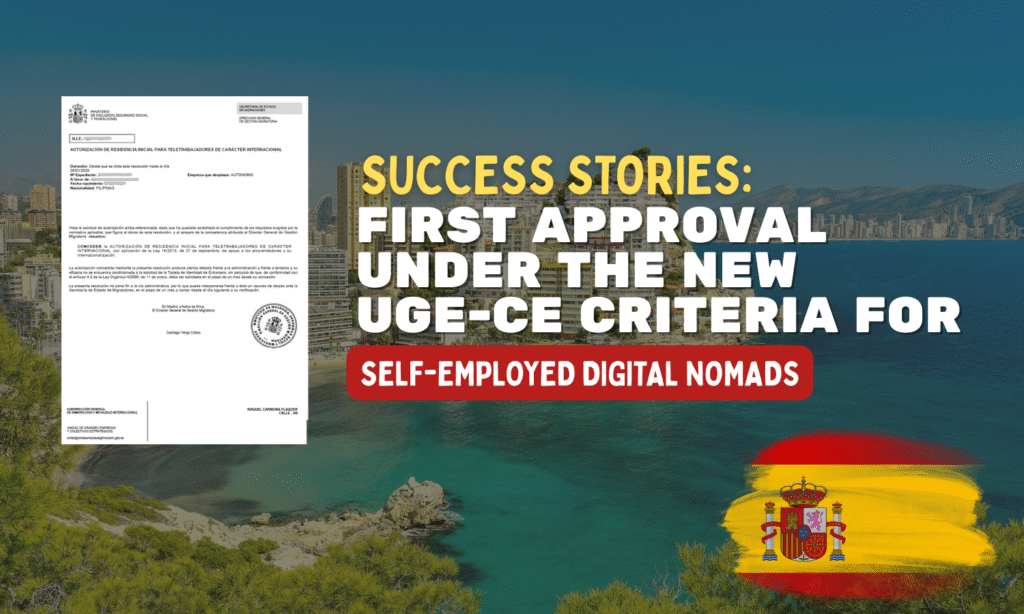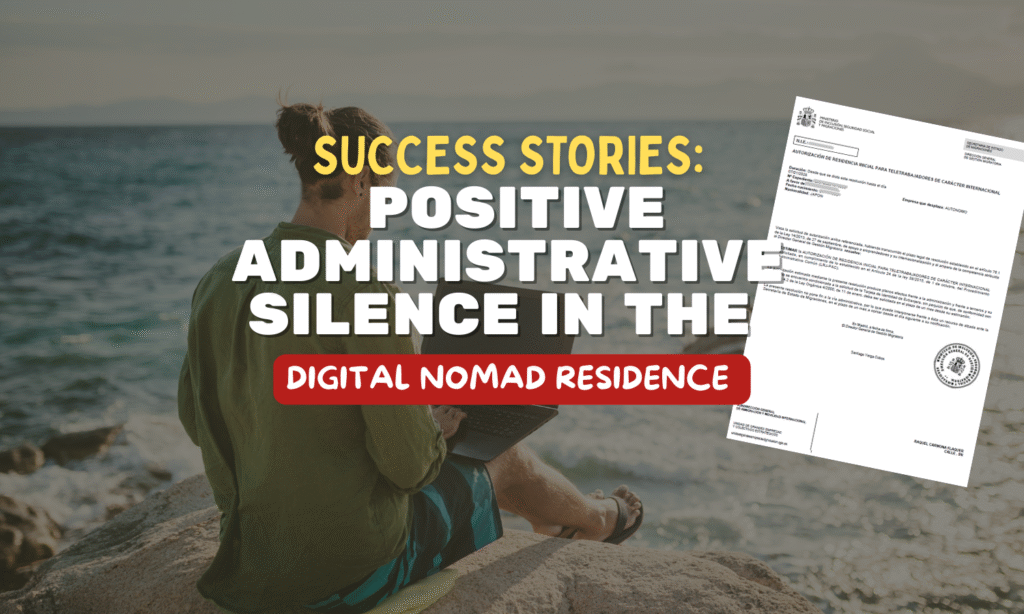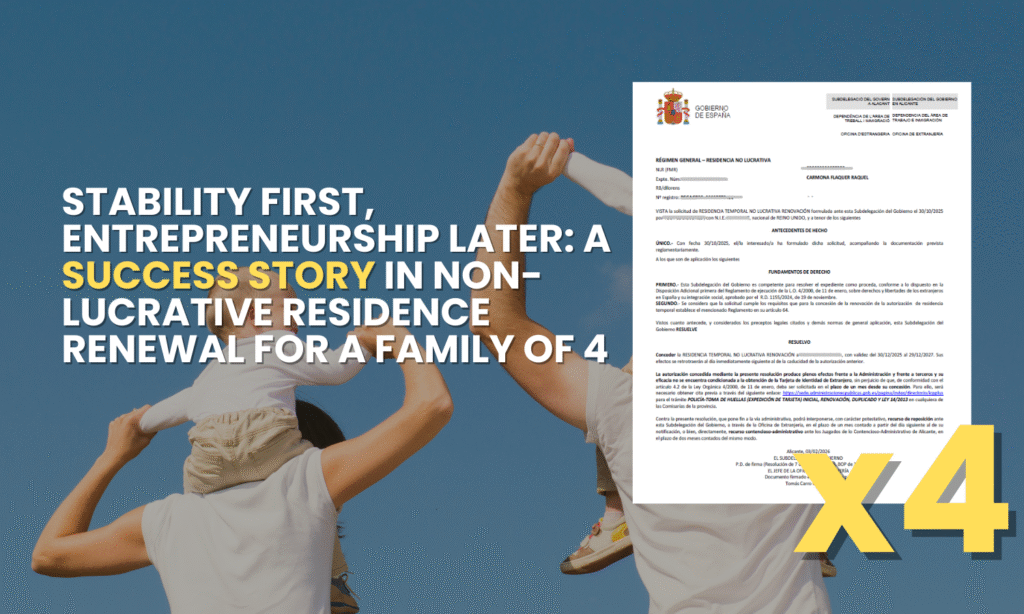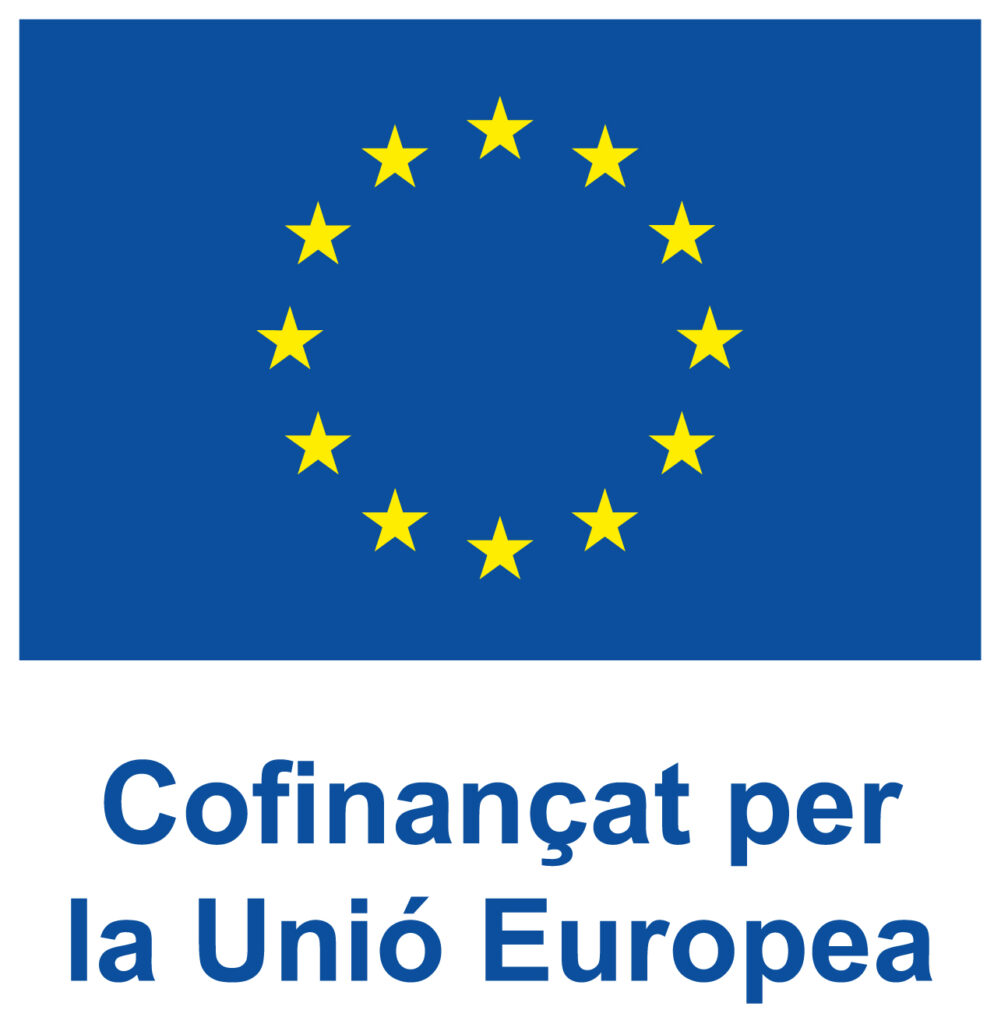If you are a citizen of any country in the European Union, the European Economic Area (EEA), or Switzerland, and you dream of living in Spain—whether to work under the Mediterranean sun, study at a Spanish university, or enjoy your retirement by the sea—the EU Citizen Registration Certificate will be your essential ally.
This document, commonly known as the “green certificate”, is the key to formalizing your stay legally and simply in Spanish territory. Below, we explain how to obtain it and why it is so important for your new life in Spain.
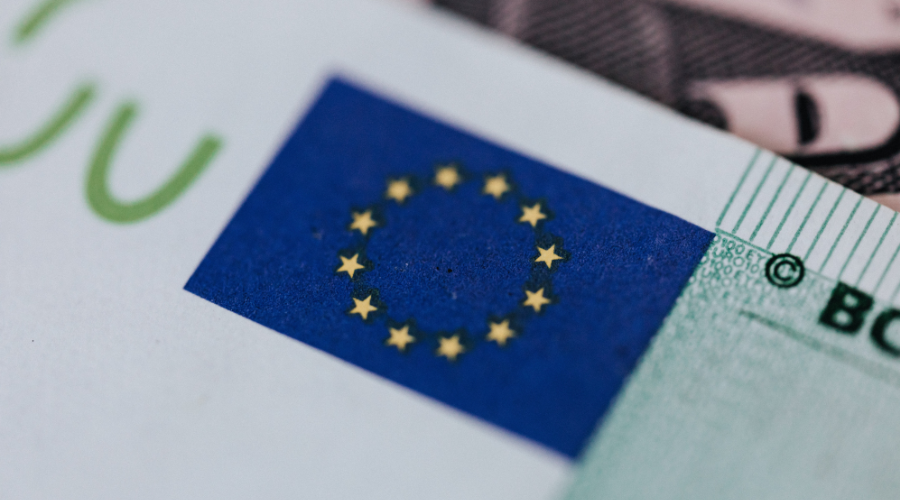
1. Do you need the EU Citizen Registration Certificate? We explain it to you
If you are a citizen of the European Union, the European Economic Area (EEA), or Switzerland and are thinking of moving to Spain, it is very likely that you will need the EU Citizen Registration Certificate, also known as the “green certificate.” But who should apply for it and when?
Who can obtain this certificate?
This procedure is intended for nationals of the following countries:
- European Union (EU): Germany, Austria, Belgium, Bulgaria, Cyprus, Croatia, Denmark, Slovakia, Slovenia, Spain, Estonia, Finland, France, Greece, Hungary, Ireland, Italy, Latvia, Lithuania, Luxembourg, Malta, Netherlands, Poland, Portugal, Czech Republic, Romania, and Sweden.
- European Economic Area (EEA): Iceland, Liechtenstein, and Norway.
- Switzerland, thanks to bilateral agreements with the EU.
Is it mandatory for everyone?
Not necessarily. This certificate is only mandatory if you are going to live in Spain for more than 90 days. That is, if you come for vacation or a short stay, you do not need it. But if you are going to establish your residence, then yes.
In what cases is it required?
Whether you come for work reasons, or you decide to study or retire in Spain, you will need to apply for it, as long as your stay exceeds three months. These are the most common profiles:
- Employees of companies in Spain
- Self-employed workers or freelancers
- Students with health insurance and sufficient financial means
- Retirees or economically inactive people with their own funds to support themselves
2. More than a procedure: what you gain with the Registration Certificate
The EU Citizen Registration Certificate is not just a paper that formalizes your stay in Spain. It is the gateway to a life with full rights as a legal resident.
With this document you can:
- Work in Spain without any additional permit, whether as an employee or self-employed
- Access the public healthcare system, just like any Spanish citizen
- Enroll your children in public schools and high schools
- Start your legal residency history, which will be key for long-term rights
And in the long term?
Time begins to count from the moment you obtain the certificate. After five years of continuous residence, you will be able to apply for long-term residence in Spain. And if your life project continues here, after ten years of legal residence, you could even apply for Spanish nationality (or earlier if you are from Andorra or Portugal).

3. The Clock Starts: Deadlines and Locations
Once you arrive in Spain, you cannot let time pass: you have a period of 90 calendar days to submit your application for the EU Citizen Registration Certificate.
Where is it done?
It depends on the province where you live:
- In some, you must go to the Foreigners’ Office
- In others, it is processed directly at the National Police Station
In both cases, it is essential to request an online appointment.
Tip: Do not wait until the last moment. Appointments may take time to become available, especially in large cities like Madrid or Barcelona.
4. The documentation: prepare everything in advance
Applying for the EU Citizen Registration Certificate is not complicated, but it does require careful preparation. Gathering the correct documentation from the beginning will save you delays and possible errors.
What documents do you need?
- EX-18 form, completed and signed. You can download it from the official website of Extranjería.
- Valid passport or national ID. If expired, it is valid if you provide proof of renewal.
- Updated certificate of registration (empadronamiento). It must be issued within the three months prior to the appointment.
- Proof of sufficient financial means:
- As a general rule, you must prove a minimum income of about €6,800 per year for the main applicant, plus around €2,400 for each dependent.
- You can justify it through recent bank statements, pensions, or recurring income.
- Health insurance:
- If you do not work in Spain (e.g., students or retirees), you will need private medical insurance with full coverage in Spanish territory.
- In some cases, you can also prove that your public health system in your country of origin covers your medical care in Spain, through the corresponding forms (such as S1 in some Member States).
Tip: Check the specific requirements in your province, as some Foreigners’ Offices may request additional documents or specific formats.
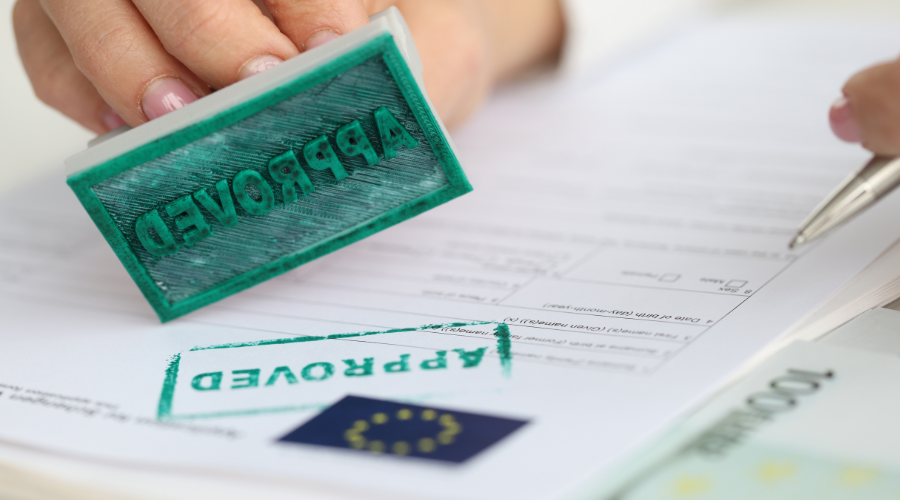
5. The Process
Start by registering in your local municipality; you will need a rental contract or an authorization from the property owner. Then, pay the 790-012 fee (€12.02) at any bank, and request your appointment. On the day of the appointment, bring all original documents and copies. After signing the form in front of the officer, you will receive the certificate immediately, with your NIE and Spanish address.
Practical tip: if you prefer a physical card with a photo, you can apply for the TIE (EX-17), but it is not mandatory.
6. Mistakes That Can Cost You Time (and Money)
Many applicants fall into avoidable traps. For example, using a temporary address (like an Airbnb) for registration, which can invalidate your application. Another common mistake is forgetting health insurance if you do not work, or waiting too long to start the process. Remember: the three months go by quickly, and missing the deadline could lead to penalties.
7. Specific Cases
- Remote workers for foreign companies: If you work for a company in another EU country, prove your income by presenting your employment contracts and payslips issued by that company.
- Retirees: If you are a pensioner, in addition to proving your pensions, you will need to purchase private medical insurance with coverage in Spain.
- Families: Remember that each family member, including children, need their own registration certificate.

8. After the Certificate: Keep Everything Updated
The certificate does not expire, but you must update your address within three months if you move. If you change status (e.g., from student to worker), renew the document. And if you decide to stay longer than five years, congratulations! You will be able to apply for permanent residence.
Your Future in Spain Starts Here
This procedure, which is usually resolved in a single appointment, goes beyond being just a simple document: it is the basis for settling in Spain safely and peacefully. If you are an EU citizen and plan to stay, don’t miss the deadlines. Prepare with the right documents and, if you have doubts, seek expert advice.
Need personalized support? At MigratioLex, we’ll accompany you every step of the way.
Contact us and take the first step toward your new life in Spain.


